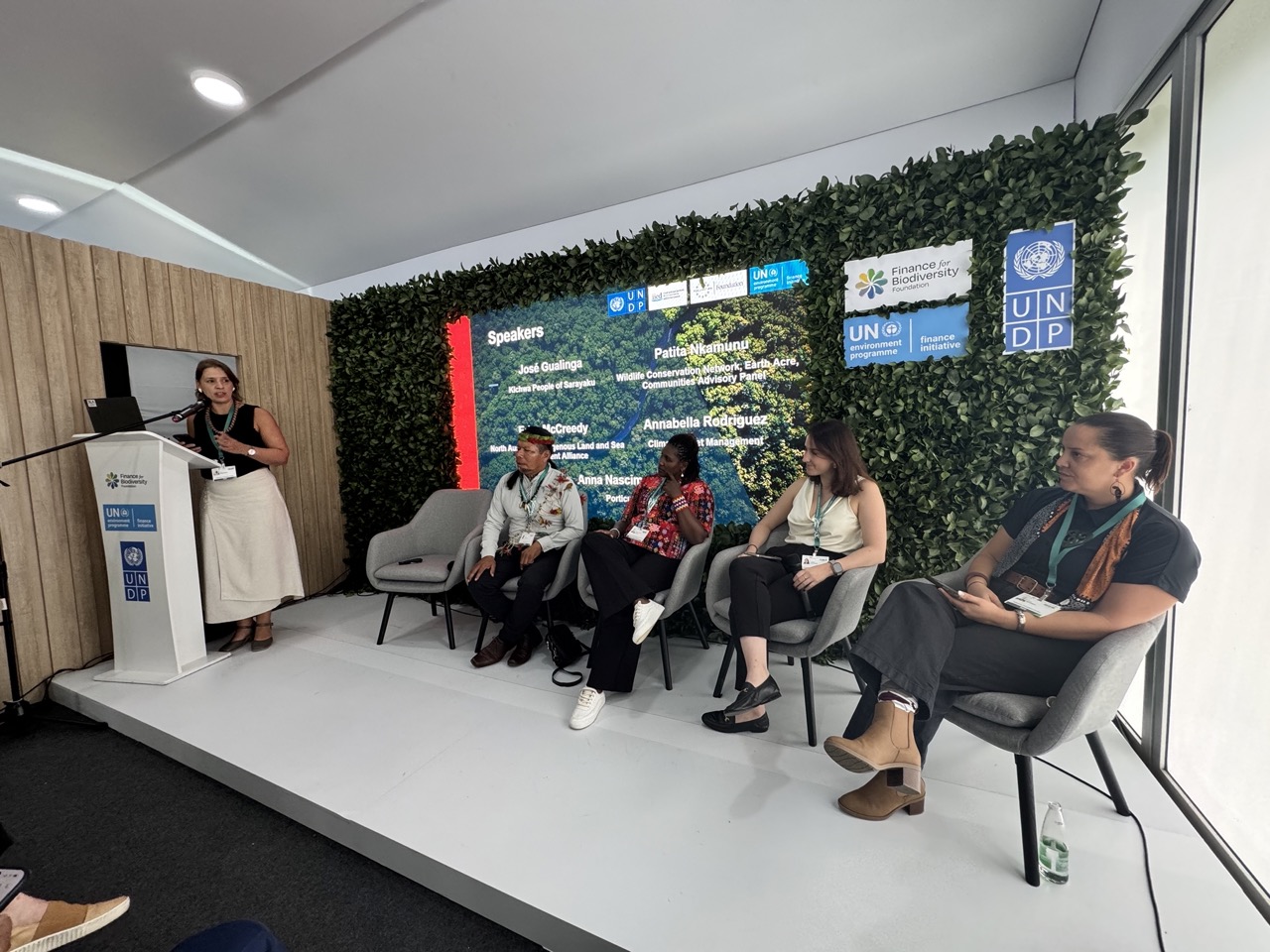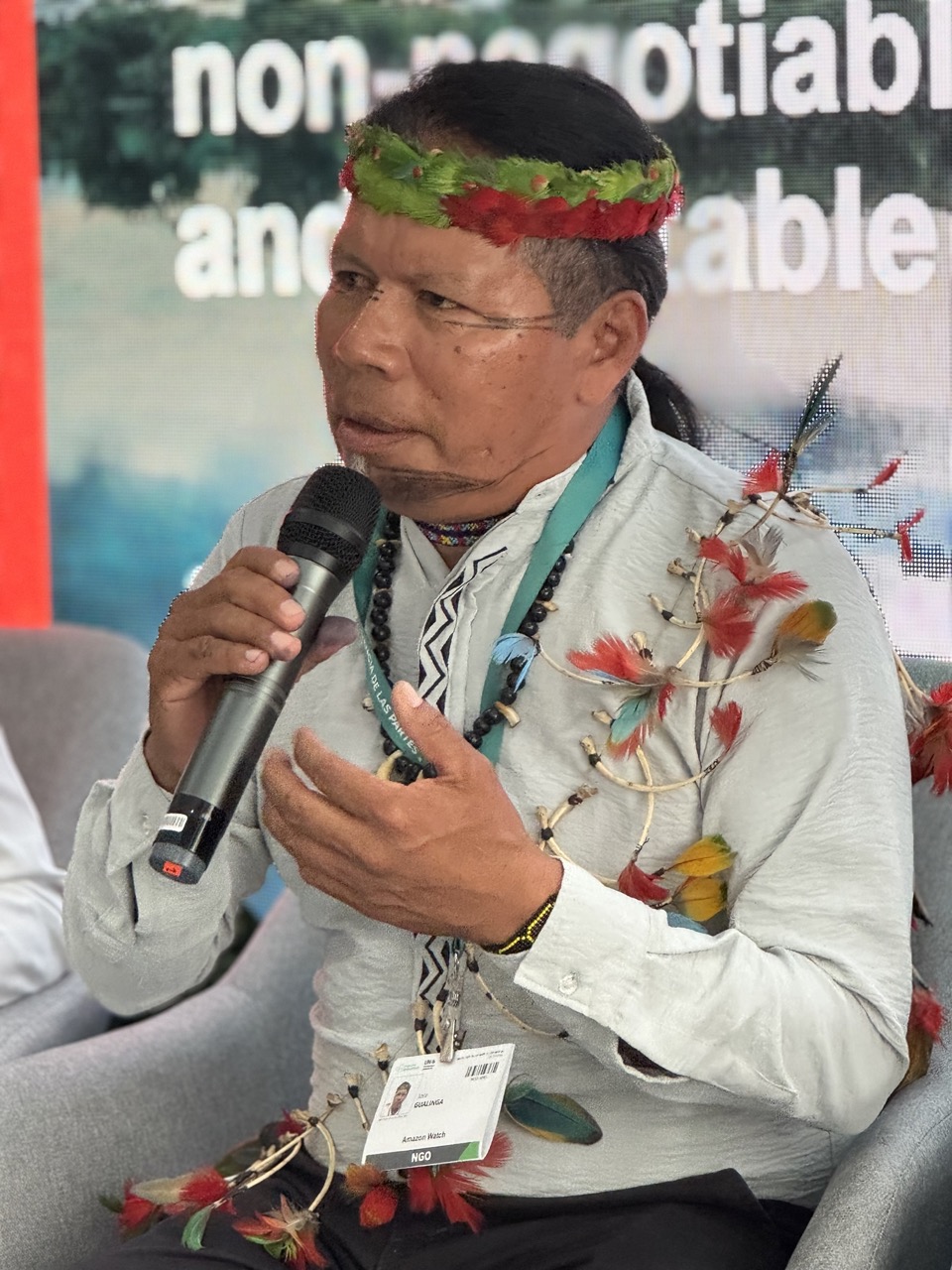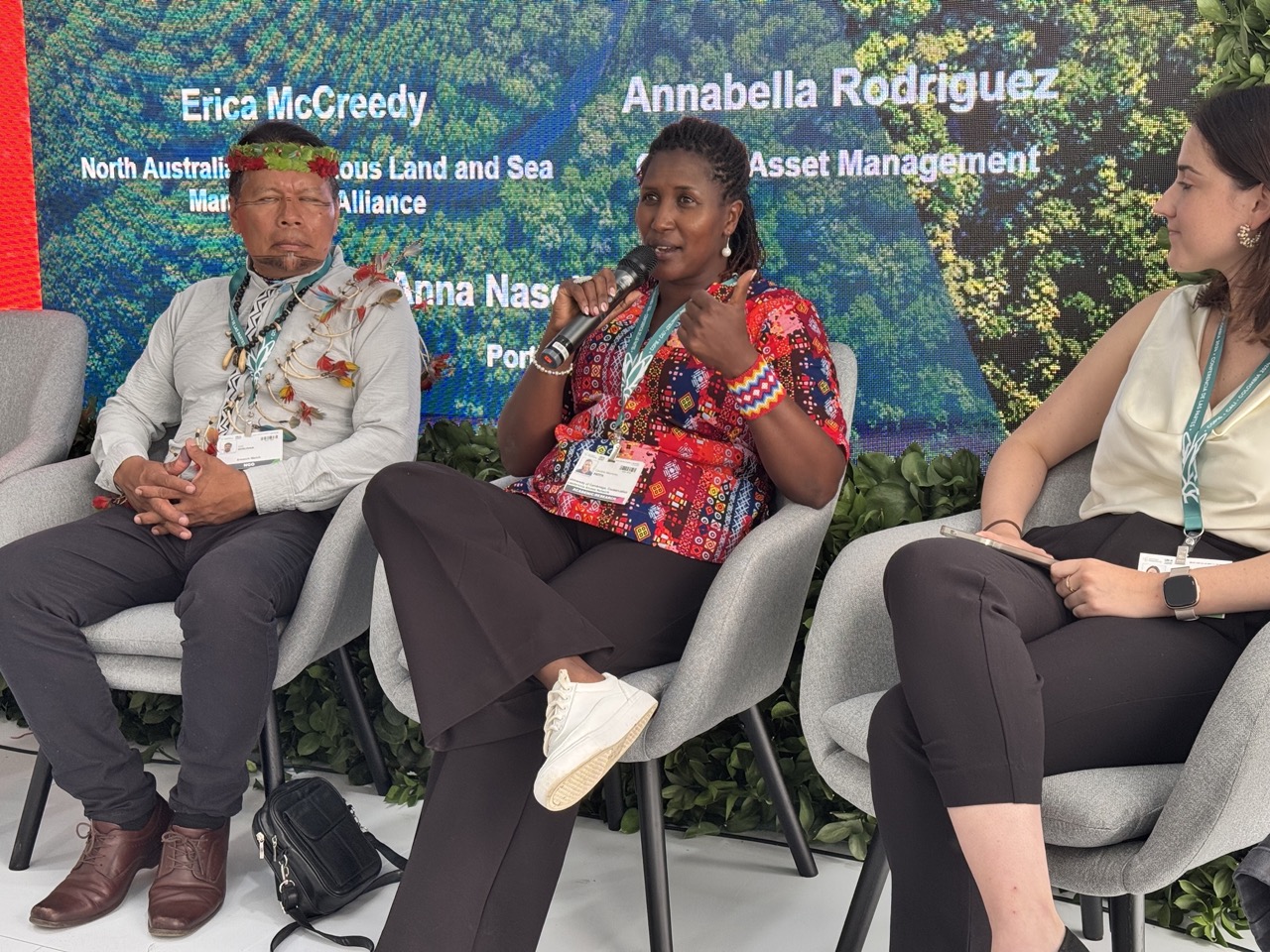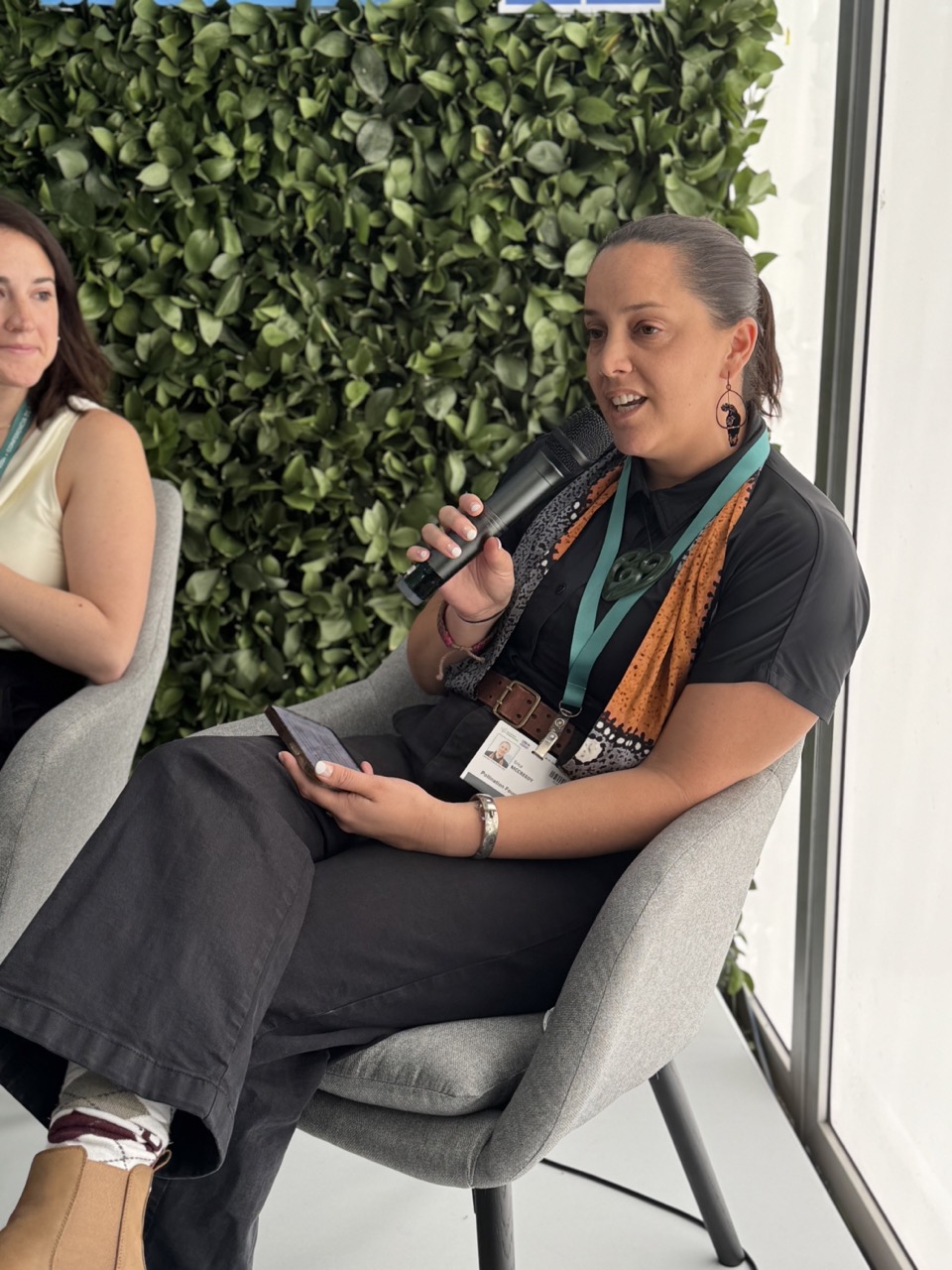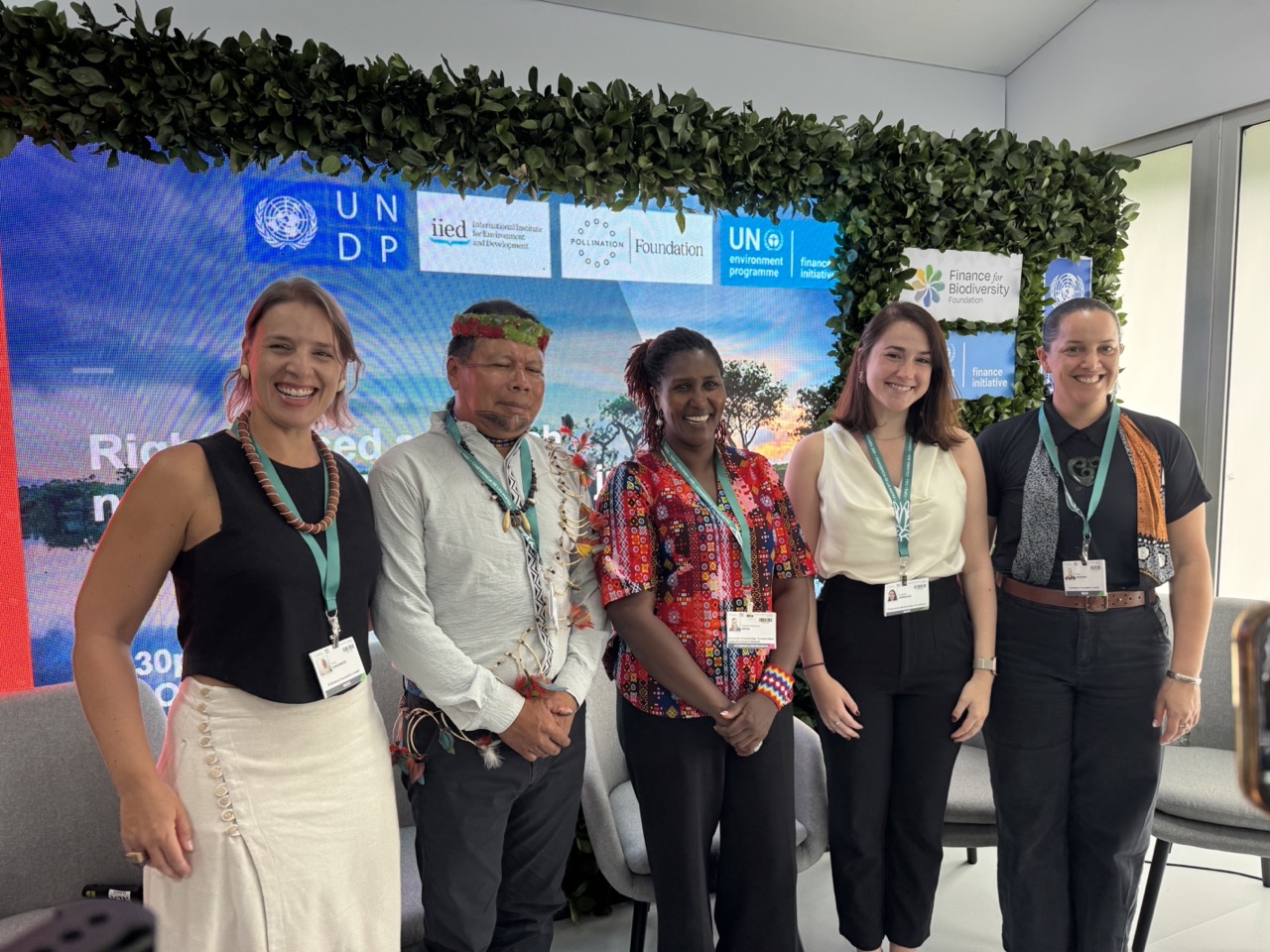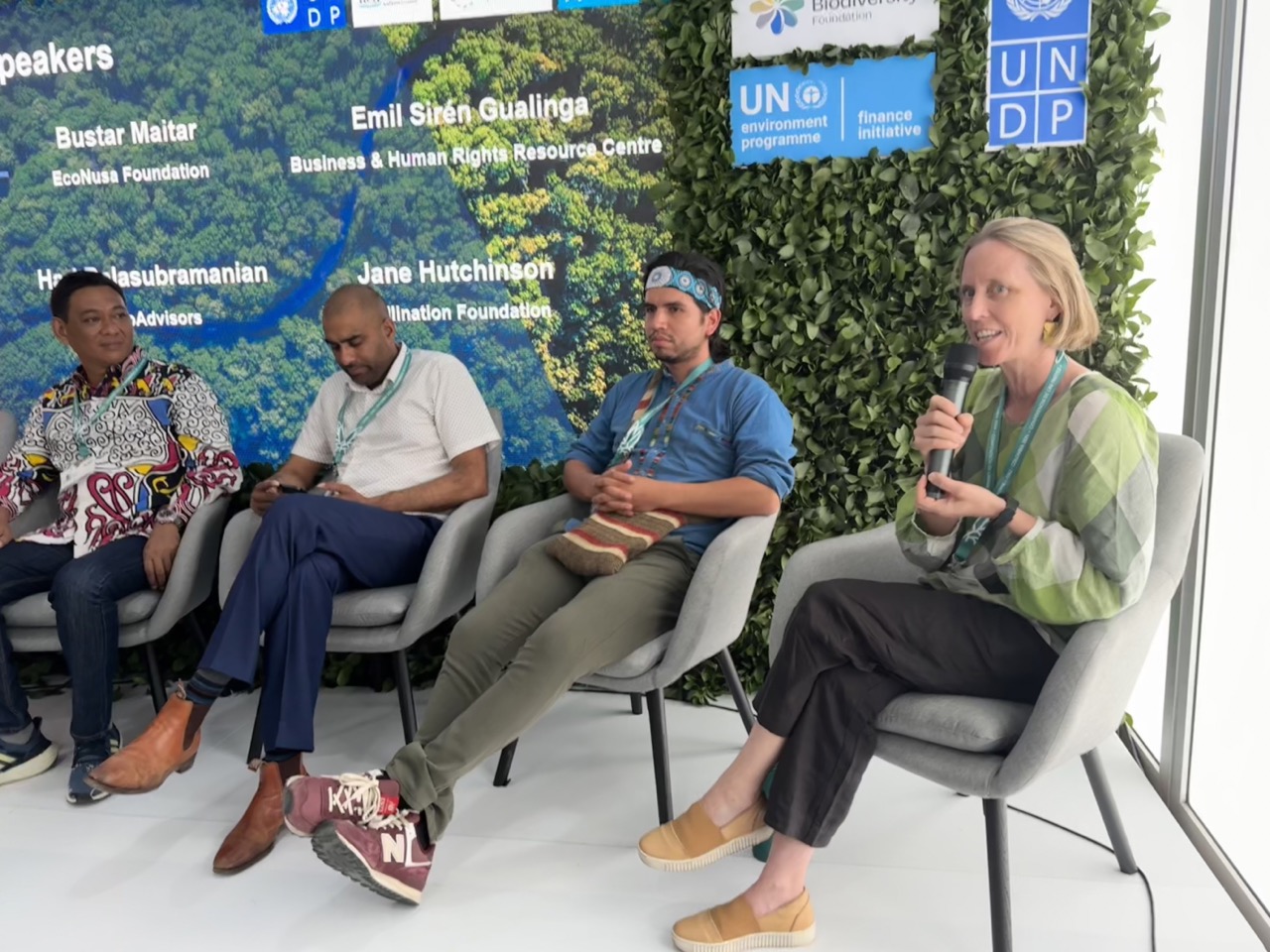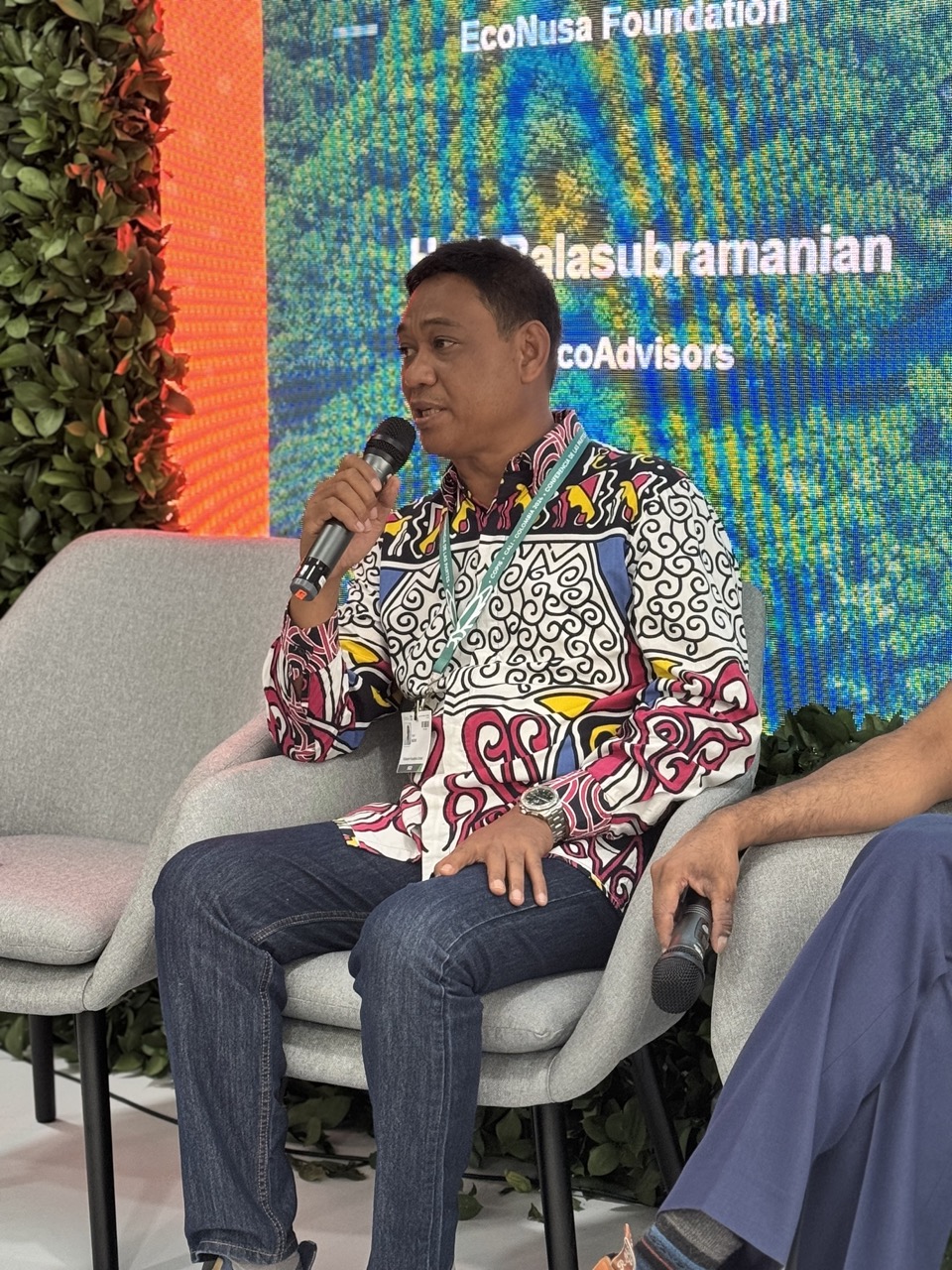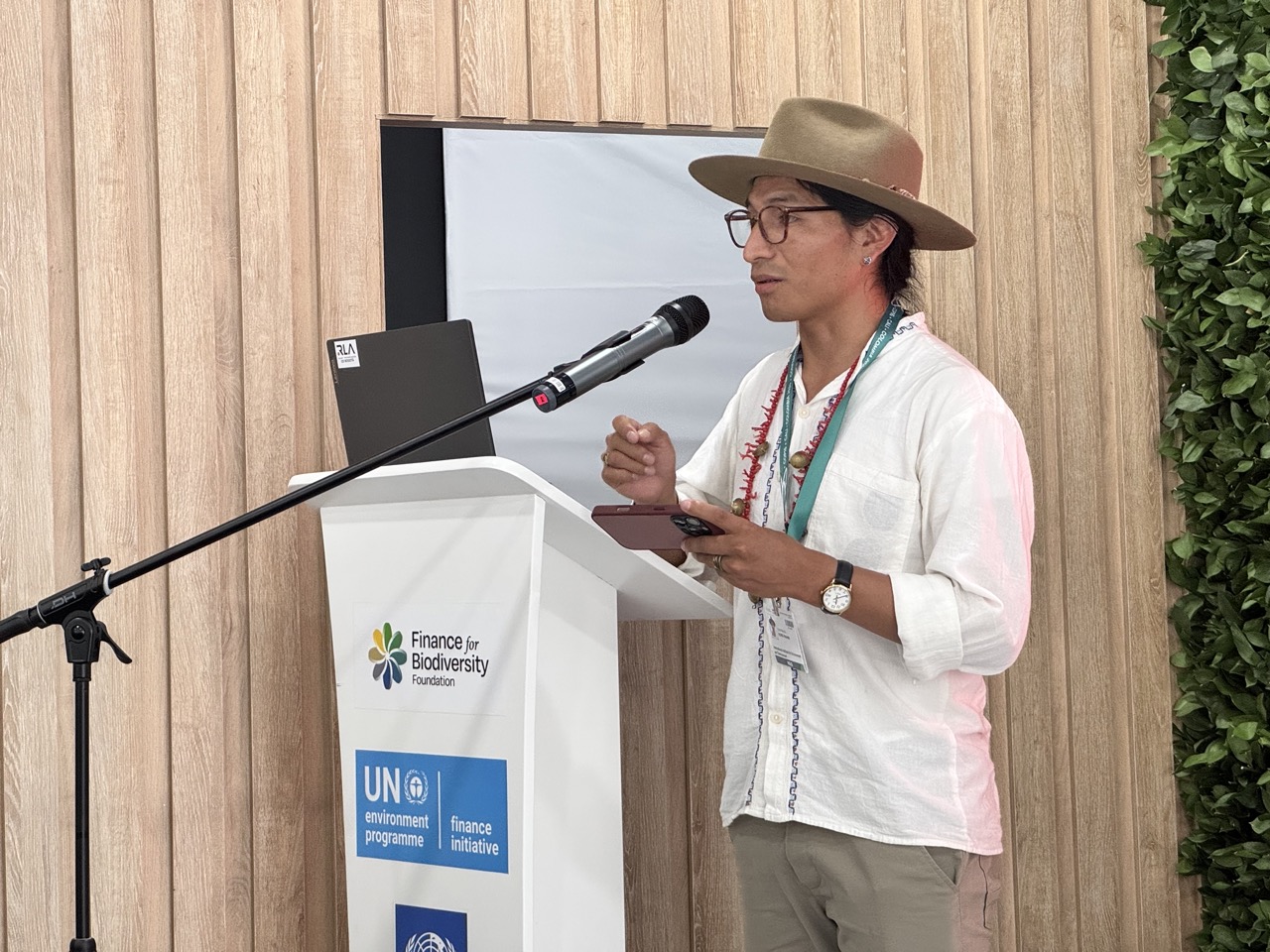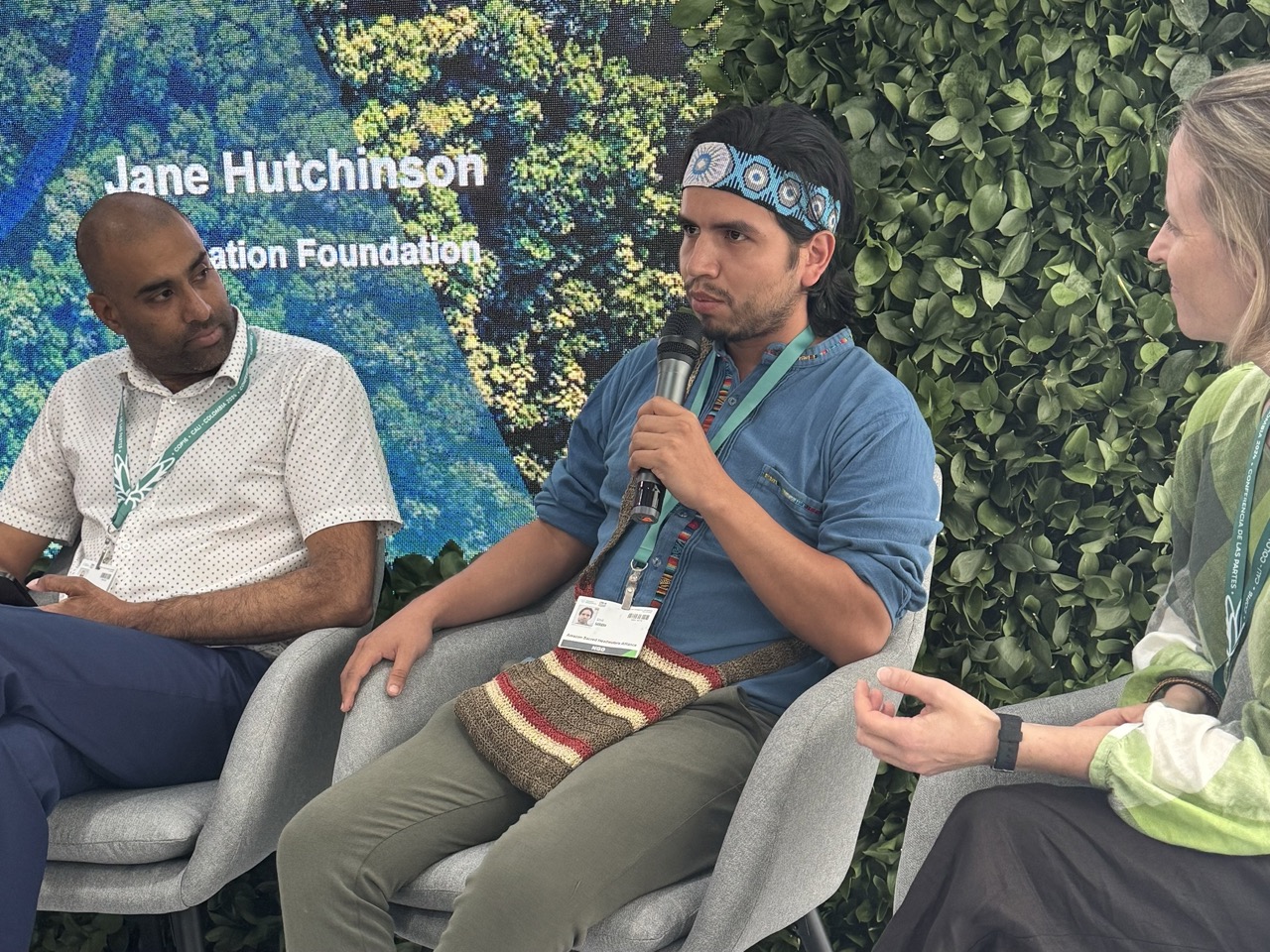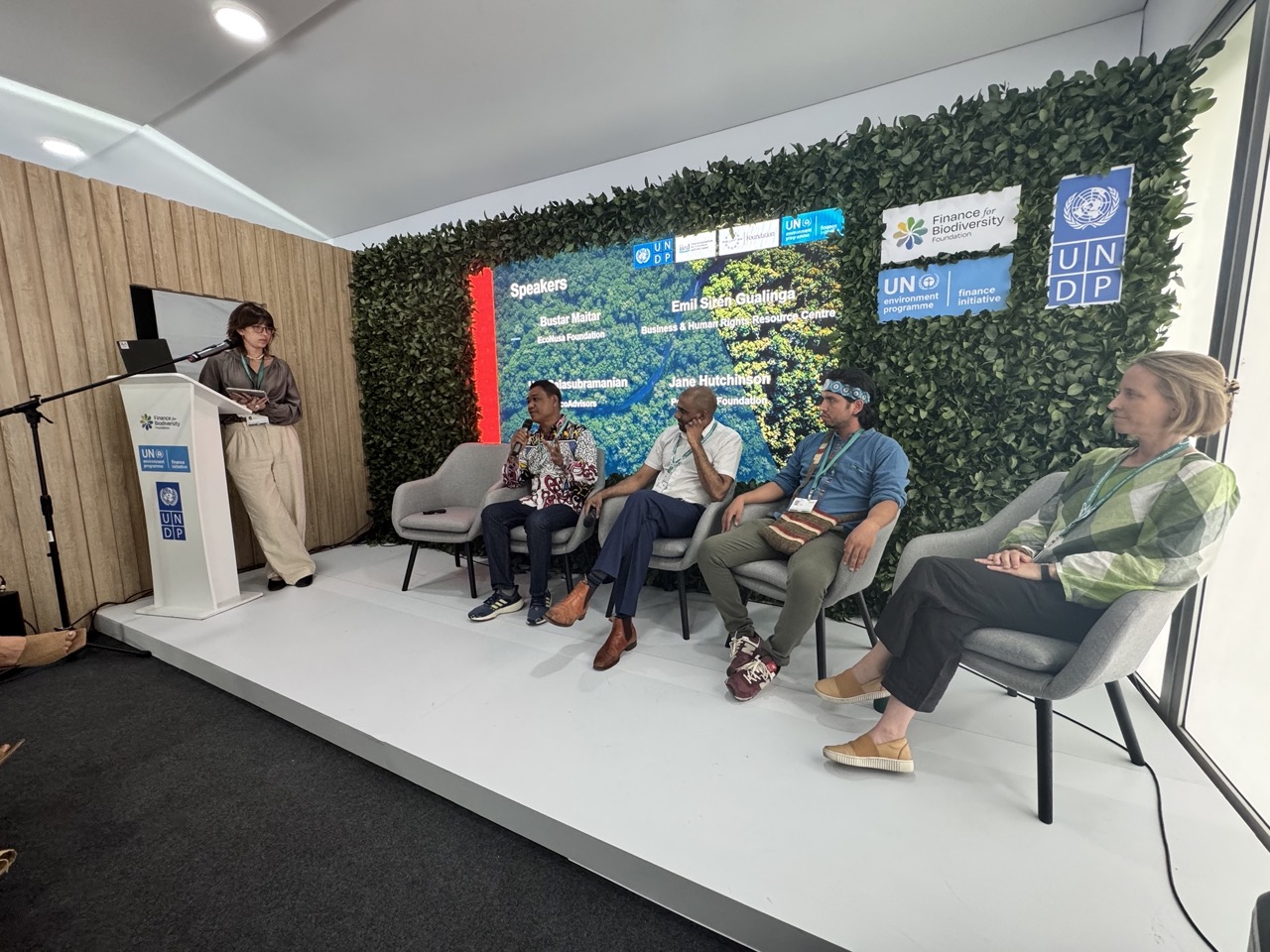2. Shift private capital mindsets to support global services.
Indigenous Peoples and Local Communities provide global services, and the role of private capital in financing biodiversity is pivotal, but it requires a paradigm shift. Anabella Rodriguez (Climate Asset Management) called for greater humility and collaboration from private investors: “Private capital is often very prescriptive—we have the capital, we want this return, just follow these rules. But that’s not the way forward for nature. If private capital can just listen, there’s so much we can learn. Indigenous communities know how to steward nature far better than we ever have.”
Hari Balasubramanian (EcoAdvisors) framed the urgency of redirecting global financial flows: “We spend over half of global GDP destroying nature. No investor in their right mind would say that’s a good business model.”
Bustar Maitar (EcoNusa Foundation) expressed frustration with the current financial systems: “I think we should be angry… Always hearing about billions of dollars for biodiversity, coming to these events, convincing everyone, yet still no money is coming to Indigenous communities.” This disconnect underscores the need for financial systems to deliver resources directly and equitably.
3. Indigenous vision supports enduring stewardship.
Indigenous leadership offers a vision of sustainability rooted in stewardship and regeneration, and Indigenous Peoples have a strong vision for what’s needed for people and nature to thrive.
Both José Gualinga (CONFENIAE) and Ňkwi Flores (Kinray Hub) stressed the necessity of long-term financial strategies rooted in Indigenous worldviews. Ňkwi introduced the metaphor of a “semi-permeable membrane” to describe the balance Indigenous communities maintain between engaging with external economies and protecting their ecosystems and cultures. “We have a very great record from our stewardship of nature. You are investing capital, but we are investing our livelihoods,” he reminded the room.
José highlighted that short-term financial gains are incompatible with the enduring stewardship Indigenous communities provide. “The longer the plan, the better it will be for the communities, for the women, and for everyone involved. It’s about building a future, not just quick fixes,” he said.
